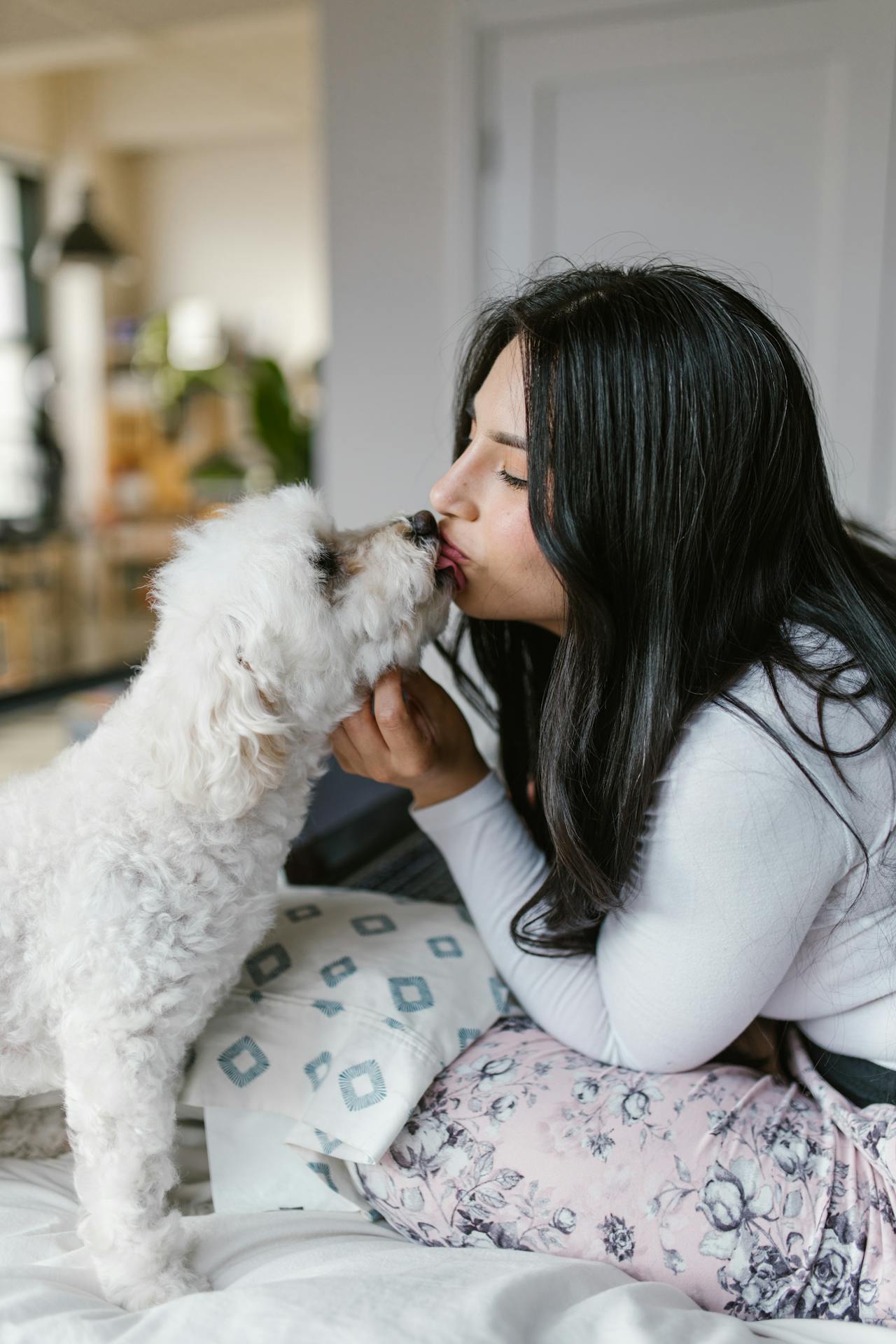Health
Many owners allow their dogs to lick their faces, but it could be unhealthy – and even fatal

It’s a heartwarming scene. (Pexels Photo)
Any dog owners reading this will know the joy of getting home and being greeted with utter delight by their pet – tail wagging wildly before enthusiastic but face-drenching licks. While some owners will push their pooches away playfully to discourage face licking, others positively revel in their dog’s affection and may even offer up pursed lips for a canine kiss.
It’s a heartwarming scene. But think of what that doggy companion has been licking throughout the day. Their food and water, their paws, their toys and chews – and maybe their bottom and genitals. Do those cute kisses seem a little less appealing now?
Not matter what pets have licked, many owners are so taken with their dogs that they’re willing to overlook the potential hygiene issues.
And licking is important for dogs. It’s an instinctive canine behaviour. When dogs repeatedly lick their mouths, it can be a subtle sign of stress or fear, especially when combined with ears back and a tense expression. In fact, observing lip licking frequency is a way to gauge dogs’ welfare during training sessions and when kept in kennels.
Dogs also use lip licking as a behavioural response to humans’ emotional states. Evidence suggests that dogs are empathetic. They can recognise emotions in both humans and other dogs using visual and audio cues. A study showed that dogs lick their lips more frequently when looking at angry human faces.
For dogs, then, lip licking is a natural instinct – and that applies to relationships with their humans, too. For anyone living with a dog, being licked is a common event, and many dogs will try to lick the faces and mouths of their humans. Almost half of canine owners report being licked on their face by their dog. But, given the penchant that many dogs have for consuming items owners might not find appetising (quick poo snack, anyone?) is it hygienic, or even safe, to let your dog lick your face?
What hides within
Owners usually love their dogs, and dogs’ companionship and affection can do wonders for their owners’ wellbeing and mental health. But there’s no doubt that, for some humans, canine saliva might do more harm than good.
For people who are immunocompromised, have open wounds, or a dog who likes to supplement their meals with a spot of coprophagia (poop eating), then it’s best to avoid those face licks.
Dogs’ mouths can harbour a range of microorganisms that are usually low risk for humans. However, in rare cases, zoonoses (infectious diseases passed on between species) can be transmitted from dogs to humans by bites, licks and scratches.
Most of the time, humans who come into contact with dog saliva do not become ill. In fact, many people manage to live alongside their pets, licks and all, without encountering any health issues.
However, there are rare cases where people have become seriously ill following contact with dog saliva. For example, Capnocytophaga canimorsus, a bacteria found in the mouths of up to three quarters of otherwise healthy dogs and cats, has caused life-threatening sepsis.
Other microbes such as Pasteurella multocida can be spread by contact with dog saliva, potentially resulting in serious outcomes including meningitis.
People considered to be at high risk from zoonotic infections are the immunocompromised, very young children, older adults and pregnant women.
If you fall into one of these groups, then it’s in your interest to dodge dog licks. Additional measures should also be implemented for at risk dog owners. Keep surfaces clean, minimise contamination of household items and maintain scrupulous household hygiene at all times, especially after contact with animals.
Antibiotic resistance is recognised as a major global health challenge. Canine saliva can be a potential source of bacteria carrying antibiotic resistant genes. These bacteria are capable of colonising humans after exposure to dog saliva.
However, in 2023 a German study of 2,800 hospital patients and their companion animals verified “that the sharing of multidrug-resistant organisms between companion animals and their owners is possible”, but the study only identified a handful of cases. The researches therefore concluded that “cat or dog ownership isn’t an important risk factor for multidrug-resistant organism colonisation in hospital patients.”
It is possible, then, that being licked by your dog could contribute to the spread of antibiotic resistance – but it isn’t likely.
Doctor dog
Despite potential threats to health, can dog licks be beneficial?
Records suggest that in the past, animal saliva has been used for wound healing, with some dogs specially trained to lick open wounds. However, there is no research to suggest that allowing animal companions to lick wounds will help them to heal. Allowing animals to lick open wounds, in fact, could put an owner at increased risk of infection.
The relationship between humans and their dogs can confer other potentially healing benefits. Animal-assisted therapy helps people with a range of issues, such as anxiety, eating disorders and trauma. Cuddling and stroking dogs, for example, can help patients to feel calmer and lower blood pressure and heart rate.
Dog owners tend to benefit from their pets through increased physical activity and social connections, as well as companionship and improved mental health. Licking, however, is not essential to the close bond between human and canine.
Within reason, for most people, letting your dog lick you is probably safe. With good management, healthcare (for you and your dog) and excellent hygiene, the risks of an occasional lick are likely to be minimal. But it’s a good idea to enforce the “not on the mouth” rule, for everyone’s safety.![]()
Jacqueline Boyd, Senior Lecturer in Animal Science, Nottingham Trent University
This article is republished from The Conversation under a Creative Commons license. Read the original article.





















